AI Tools
Essential AI Tools Every YouTuber Should Use in 2025
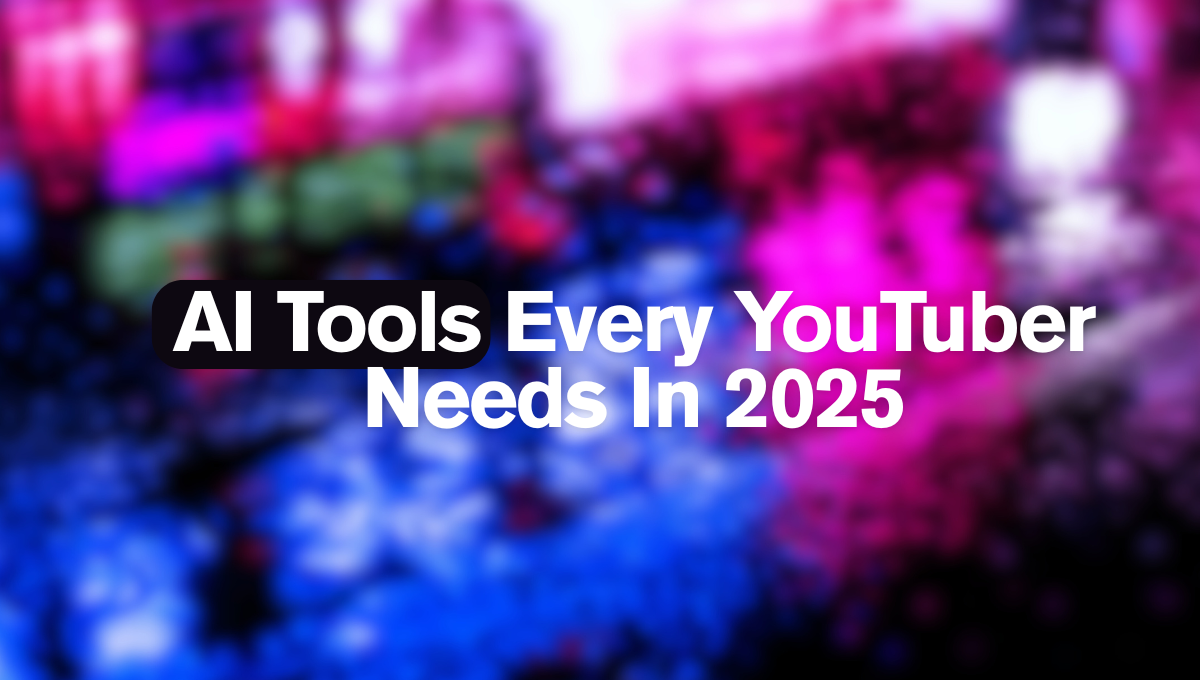
Creating content on YouTube has gotten incredibly competitive. Every day, thousands of new videos go live, and standing out feels nearly impossible without the right tools. That’s where artificial intelligence comes in – not to replace your creativity, but to handle the boring stuff so you can focus on what you love most.
I have been watching how successful YouTubers work, and the ones crushing it right now all have one thing in common: they’re using AI to work smarter, not harder.
Let me walk you through the game-changing tools that can seriously level up your YouTube game this year.
Smart Video Editing That Actually Saves Time
Remember spending entire weekends editing a single video? Those days are over. The newest AI editing tools are honestly mind-blowing. Take Descript, for example – you can literally edit your video by editing text. Found a mistake in what you said? Just delete it from the transcript, and it disappears from your video. No more hunting through timelines for that one “um” you want to cut out.
Then there’s Runway ML, which feels like magic. Need to remove that messy background from your shot? Done in seconds. Want to create smooth transitions between scenes? The AI handles it while you grab coffee. Even if you’ve never touched video editing software before, these tools make you look like a pro.
Adobe Premiere Pro’s AI features are getting scary good too. The Auto Reframe tool automatically adjusts your horizontal YouTube video for vertical formats like TikTok or Shorts. Instead of manually repositioning everything, the AI tracks the action and keeps everything perfectly framed. It’s like having an assistant who never gets tired.
Thumbnails That Actually Get Clicks
Your thumbnail is literally the first impression viewers get of your video. Mess it up, and even amazing content gets ignored. The good news? AI thumbnail creation has become incredibly sophisticated.
Canva’s Magic Design feature analyzes what’s working in your niche and suggests thumbnail layouts that actually convert. It’s not just throwing random templates at you – it’s looking at click-through rates and engagement data to recommend designs that work.
For custom artwork, tools like Midjourney have completely changed the game. You can create unique characters, backgrounds, and visual elements that would’ve cost hundreds of dollars to commission. The trick is learning how to describe what you want clearly. Instead of “cool background,” try “cinematic bokeh effect with warm golden lighting” – the results are dramatically different.
Photoshop’s new AI tools let you expand images beyond their original borders or remove unwanted objects with frightening accuracy. Shot a great reaction face but there’s a messy shelf in the background? Gone in two clicks.
Never Run Out of Content Ideas Again
Coming up with fresh video ideas every week is exhausting. Your brain eventually runs dry, and you start recycling the same concepts over and over. AI research tools have become lifesavers for this exact problem.
I use ChatGPT differently than most people suggest. Instead of asking for generic video ideas, I give it context about my audience, recent performance data, and current trends in my space. Then I ask for specific angles on topics I know work. The results are way more targeted and useful.
VidIQ’s AI features go beyond basic keyword research. It analyzes your successful videos and finds patterns you might’ve missed. Maybe your audience loves tutorials posted on Wednesdays, or they engage more with videos that include specific keywords in the first 15 seconds. This data helps you plan content that’s more likely to succeed.
Google Trends combined with AI analysis tools can predict what topics are about to blow up. Instead of chasing trends after they peak, you can create content while the wave is building. That’s how you get ahead of the competition.
Writing Scripts Without the Struggle
Staring at a blank document wondering what to say next is the worst feeling. AI writing tools have gotten really good at helping break through that mental block, but you need to use them strategically.
Jasper AI understands YouTube’s algorithm preferences and can suggest language that encourages engagement. But here’s the key – don’t just copy what it generates. Use it as a starting point and add your personality. The AI might suggest “Today we’re going to explore,” but you might naturally say “Alright guys, let’s dive into.” Keep your voice authentic.
Copy.ai excels at creating compelling calls-to-action and video descriptions. It knows what phrases tend to drive subscriptions and engagement, which takes the guesswork out of those crucial elements.
Notion AI has become my secret weapon for content planning. It helps organize video series, suggests related topics that could become playlists, and even generates social media posts to promote each video. Everything stays connected and organized.
Professional Audio Without Professional Equipment
Bad audio kills videos faster than anything else. People will tolerate lower video quality, but if they can’t hear you clearly, they’re gone. AI audio tools have made professional-quality sound accessible to everyone.
Adobe’s Enhance Speech feature removes background noise, adjusts volume levels, and makes your voice sound like it was recorded in a professional studio. I’ve saved videos that I thought were unusable because of audio issues.
Descript’s Overdub feature lets you fix mistakes without re-recording entire sections. Made a factual error three minutes into a ten-minute video? Just type the correction and the AI will generate it in your voice. It’s not perfect for long passages, but for quick fixes, it’s incredible.
Music selection used to mean spending hours browsing through tracks hoping to find something that fits. Epidemic Sound’s AI now analyzes your video content and suggests tracks that match the mood and pacing. It even considers copyright requirements, so you never have to worry about strikes.
Posting Consistently Without Burning Out
Consistency builds audiences, but maintaining a regular schedule is hard when life gets busy. AI scheduling tools have become essential for keeping channels active even during hectic periods.
Later’s AI analyzes when your specific audience is most active and suggests optimal posting times. It’s not generic advice – it’s based on your actual viewers’ behavior patterns. The difference in initial engagement can be dramatic.
TubeBuddy’s AI suggestions for titles, tags, and descriptions are getting remarkably accurate. It studies successful videos in your niche and recommends similar optimization strategies. The suggested titles often perform better than ones I brainstorm myself.
Buffer automatically creates promotional posts for other social platforms when you upload to YouTube. It adapts the content for each platform’s requirements and audience expectations, saving hours of manual posting.
Understanding Your Performance Like a Pro
YouTube Analytics provides tons of data, but interpreting it all can be overwhelming. AI analytics tools help identify patterns and opportunities you might miss.
Creatorml predicts how your thumbnails and titles will perform before you publish. You can test different combinations and choose the one most likely to succeed. It’s like having focus group data without the focus group.
Social Blade’s pattern recognition helps identify what content types work best for your channel and when your audience is most receptive to different video styles. This insight helps plan content calendars that maximize growth potential.
Keeping It Real in an AI World
Here’s what I’ve learned after using these tools for months: the most successful YouTubers use AI to handle the technical stuff, not the creative stuff. Your personality, your perspective, your unique way of explaining things – that’s what keeps people coming back.
AI handles the optimization, the editing grunt work, and the research heavy lifting. You handle the storytelling, the emotional connection, and the authentic moments that make people care about your content.
The creators winning right now aren’t the ones with the fanciest AI tools – they’re the ones who’ve figured out how to use technology to amplify their natural strengths. They spend less time on tedious tasks and more time connecting with their audience.
As 2025 progresses, these AI tools will only get better and more accessible. The YouTubers who adopt them thoughtfully while maintaining their authentic voice will have a massive advantage over those still doing everything manually. The technology isn’t coming – it’s here, and it’s time to make it work for you.
AI Tools
AI helps developers lift home sales by 20%

Artificial intelligence (AI) is now growing rapidly and started helping several business. In India, the firm increase home sales conversion rates by as much as 20 percent as developers lean into technology to streamline customer experiences, optimise pricing and speed up decision-making.
AI helps developers lift home sales
“From our conversations with sector experts, the most immediate impact of AI is visible in sales, marketing and pricing strategies,” said Shekhar Patel, president of the Confederation of Real Estate Developers’ Associations of India (CREDAI). “AI-powered chatbots, virtual site walkthroughs and predictive customer analytics are helping developers personalise offerings and improve conversion rates by up to 20 percent.”
Developers are using AI across the board—from customer-facing platforms to backend operations—to refine every aspect of the value chain.
Tata Realty and Infrastructure has implemented AI tools like Salesforce Marketing Cloud and Einstein AI to enhance homebuyer engagement and reduce friction across digital touchpoints. These tools have allowed the company to personalise interactions and optimise lead qualification in real time.

“Since implementing AI-led tools, we have achieved a 20 percent reduction in CPQL (cost per qualified lead), and booking conversions rate have grown by 10 percent year-on-year,” said Sanjay Dutt, MD and CEO of Tata Realty. “The improvements stem from sharper targeting, real-time campaign optimisation and improved homebuyer interactions.”
AI Tools
Is This Simple Note-Taking App the Future of AI?
In 2025 there were several AI tools launched and most apps try to replace human tasks entirely. But Granola in this case performed the best option and took a different approach—and Silicon Valley noticed big time. This simple AI note-taking app has raised over $60 million in funding and caught the attention of major tech companies, proving that sometimes the best AI doesn’t replace humans but makes them better.
The Problem That Started It All
Anyone who’s ever sat through back-to-back meetings knows the struggle. You’re trying to pay attention, participate meaningfully, and capture important details all at once. Traditional note-taking apps make you choose between being present or being thorough. Voice recorders create hours of audio nobody wants to review. Meeting bots feel awkward and impersonal.
Granola saw this gap and decided to build “the only one putting the human first.” Instead of trying to replace human note-takers, they created an AI-powered notepad that works alongside your natural note-taking habits.
How Granola Actually Works
The concept is beautifully simple. Granola works by installing locally on your Mac and connecting to your calendar. It captures audio from popular meeting platforms like Zoom, Google Meet, and Microsoft Teams without requiring any meeting bots to join. You jot down the things that matter to you during the meeting, just like you would with a regular notepad.
The magic happens afterward. Granola uses AI to transcribe the entire meeting in the background, then combines your handwritten notes with the full transcript to create comprehensive, useful notes. No awkward meeting bots – just beautiful notes for you and your team, every single time.
Why Silicon Valley Went Crazy for It
The milestone showcased an incredible story. In October 2024, Granola raised a $20 million Series A funding round despite just 5,000 weekly users. That number has grown consistently by 10% each week since, reaching around 50,000 users by early 2025. Then in May 2025, AI-powered notetaking app Granola is raising $43 million in funding at a $250 million valuation.
But it’s not just about the money. Since launch, Granola has quickly gained traction among senior tech leaders at companies like Vercel, Ramp, and Roblox and top venture capital firms including Benchmark, Sequoia, Accel. These aren’t just any users—they’re the people who see hundreds of AI tools every week and choose what’s worth their time.
The Human-First Philosophy That Won
What makes Granola different isn’t just its technology—it’s its philosophy. They advocate a message that resonated across Silicon Valley: AI should support human thought, not replace it. In a world where AI companies rush to automate everything, Granola’s approach feels refreshingly human.
The app doesn’t try to think for you or make decisions about what’s important. Instead, it amplifies your own judgment and note-taking style. You decide what to write down in the moment, and AI fills in the gaps later. This approach respects both human intelligence and the irreplaceable value of being present in conversations.
AI Tools
Granola’s success represents something bigger than just good note-taking software. It shows that the most successful AI tools might not be the ones that replace human tasks entirely, but the ones that make human capabilities stronger. We worry a lot about AI replacing humans, sometimes AI tools can just make better humans.
The app also proves that simple concepts, executed well, can beat complex solutions. While other companies built elaborate AI meeting assistants with dozens of features, Granola focused on doing one thing exceptionally well—making meeting notes better without changing how people naturally work.
As remote work continues and meetings multiply, tools like Granola become more essential. The company’s rapid growth and high-profile funding rounds suggest that Silicon Valley believes AI-assisted note-taking is just the beginning of a larger trend toward human-AI collaboration.
For professionals drowning in meetings, Granola offers hope that AI can actually make work more human, not less. By handling the tedious parts of note-taking while preserving the human elements of attention and judgment, it might just represent the future of how we’ll work alongside artificial intelligence.
The lesson for other AI companies is clear: sometimes the best way to grab Silicon Valley’s attention isn’t to replace what humans do, but to make them better at it.
AI Tools
Bilibili introduced an AI creation tool Codename H

Bilibili has reportedly introduced an ambitious video podcast strategy with AI tool “Codename H” and creator support policies. Discover how this shift could reshape digital content creation.
Ever wondered why your favorite YouTubers are suddenly talking into cameras instead of just microphones? The answer lies in the explosive growth of video podcasts – and Bilibili is betting big on this trend with a comprehensive strategy that could change everything for content creators.
The Video Podcast Revolution Taking Over Bilibili
Video podcasts aren’t just audio content with a camera rolling anymore. It become the bridge between traditional podcasting and modern video consumption, offering creators unprecedented opportunities to connect with audiences. Bilibili recognizes this shift and is doubling down with an aggressive expansion strategy.
This milestone can define everything. In Q1 2025 alone, Bilibili users consumed a staggering 25.9 billion minutes of video podcast content – that’s a mind-blowing 270% increase from the previous year. With over 40 million users now engaging with this format, it’s clear that video podcasts have moved from niche experiment to mainstream phenomenon.
While the global Chinese podcast audience sits at around 150 million users, Bilibili has already captured more than a quarter of that market with their video-first approach.
Inside Bilibili’s Three-Pronged Support Strategy
Traffic Amplification for New Creators
Getting noticed on any platform is tough, but Bilibili’s cold start support program specifically targets the biggest hurdle new podcast creators face: visibility. Instead of leaving creators to fight for organic reach, the platform actively promotes fresh video podcast content to relevant audiences.
Think of it as having a personal marketing team working behind the scenes. New creators won’t have to spend months building an audience from scratch – they’ll get that crucial initial boost that can make or break a content creator’s journey.
Physical Recording Spaces in Major Cities
Here’s where Bilibili gets creative with their support. Free recording venues in first-tier cities solve a practical problem many creators struggle with: finding professional-quality spaces without breaking the bank.
Picture this scenario: You’re a podcast creator in Shanghai with great ideas but recording from your cramped apartment. Bilibili’s offering changes everything – suddenly you have access to professional lighting, acoustic treatment, and equipment that would cost thousands to set up independently.
The Game-Changing AI Creation Tool
But the real star of Bilibili’s strategy is their upcoming AI creation tool, internally dubbed “Codename H.” This isn’t just another AI assistant – it’s specifically designed to tackle the most time-consuming aspect of video podcast production: finding and editing visual content.
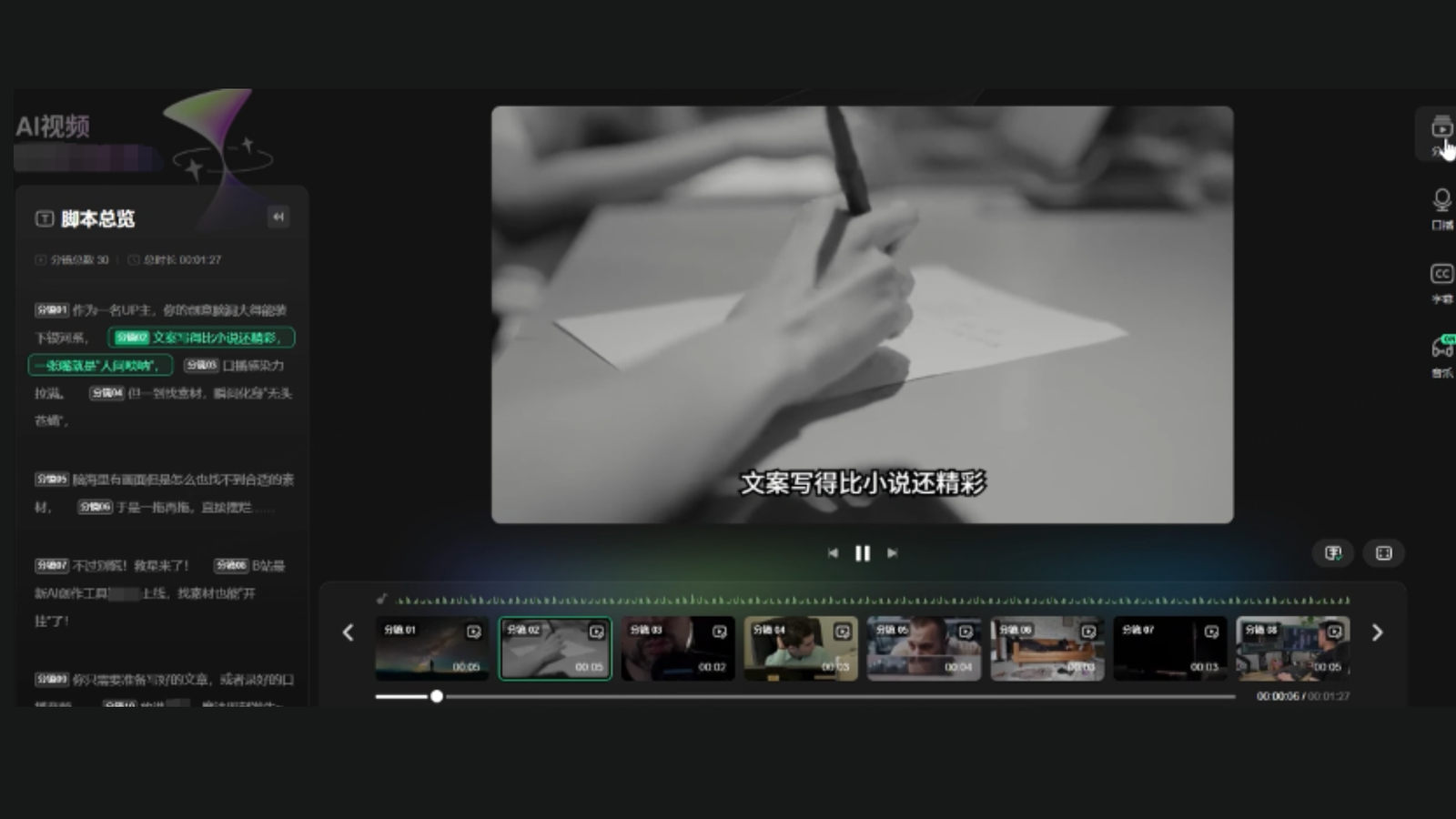
Bilibili Codename H
How “Codename H” Works Its Magic
The AI tool accepts two input formats: written scripts and audio recordings. Creators simply upload their content, and the system automatically generates relevant visuals, graphics, and supporting materials. Currently, it can process 1,000 words of content in just six minutes, with plans to reduce that to three minutes.
Imagine spending hours searching for the perfect image to illustrate your point about market trends, only to have AI deliver exactly what you need in seconds. That’s the promise of Codename H.
The tool supports two main templates:
- Podcast format: Optimized for conversational content with dynamic visual elements
- Knowledge-sharing format: Designed for educational content with informative graphics and charts
Early feedback from beta testers has reportedly exceeded expectations, suggesting the tool genuinely solves real creator pain points rather than just adding unnecessary complexity.
Why This Matters for Content Creators
The Productivity Revolution
Video podcast creation typically involves multiple steps: recording, editing, visual research, graphic design, and post-production. Codename H collapses several of these steps into an automated process, potentially reducing production time by 60-70%.
For creators juggling multiple projects or those just starting out, this efficiency gain could be the difference between sustainable content creation and burnout.
Lowering the Technical Barrier
Not everyone’s a video editing expert, and that’s okay. Bilibili’s approach recognizes that great content creators shouldn’t need to become technical wizards to succeed. By handling the visual heavy lifting, creators can focus on what they do best: creating compelling, valuable content.
The Bigger Picture: Bilibili’s 2025 Vision
This video podcast push fits into Bilibili’s broader 2025 strategy, which includes strengthening AIGC capabilities, improving conversion rates, and expanding advertising automation. The company is also testing “B Mini Programs” in gaming, with plans to expand into short dramas and novels.
What’s particularly smart about this approach? Instead of competing directly with established platforms on their strengths, Bilibili is creating new categories where they can lead from the front.
The integration of AI tools with creator support services suggests a platform that understands modern content creation challenges. Rather than just providing hosting, Bilibili is building an ecosystem that nurtures creator success.
What This Means for the Future
The success of Bilibili’s video podcast strategy could influence how other platforms approach creator support. We might see more platforms offering integrated AI tools, physical resources, and targeted growth support rather than just hosting services.
For creators, this represents a shift toward platforms that actively invest in their success rather than leaving them to figure everything out independently. The combination of AI assistance, physical resources, and traffic support creates a compelling value proposition that could attract creators from competing platforms.
Key Point
Bilibili’s comprehensive video podcast strategy, anchored by the innovative Codename H AI tool, represents more than just another platform update. It’s a fundamental reimagining of how platforms can support creator success through integrated technology, resources, and growth strategies.
Ready to explore how AI-powered content creation could transform your own projects? The video podcast revolution is just beginning, and platforms like Bilibili are showing us what’s possible when technology truly serves creativity.

 AI News7 months ago
AI News7 months agoGoogle Expands Firebase Studio with AI Tools for Popular Frameworks

 AI News7 months ago
AI News7 months agoTurn Photos into Videos Using Google Gemini AI

 AI News7 months ago
AI News7 months agoApple New AI Model Can Detect Pregnancy With 92 percent

 AI News7 months ago
AI News7 months agoGoogle hires Windsurf execs in $2.4 billion deal

 AI Tutorial7 months ago
AI Tutorial7 months agoHow to Turn Off Microsoft AI Features

 AI News7 months ago
AI News7 months agoOpenAI has now restored the services after outage

 AI News7 months ago
AI News7 months agoYouTube rolls out new AI-powered tools for Shorts creators

 AI Tools7 months ago
AI Tools7 months agoIs This Simple Note-Taking App the Future of AI?



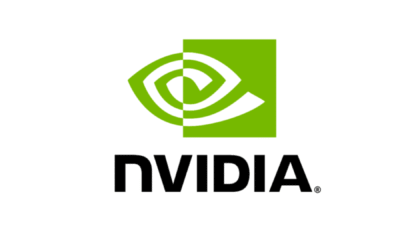

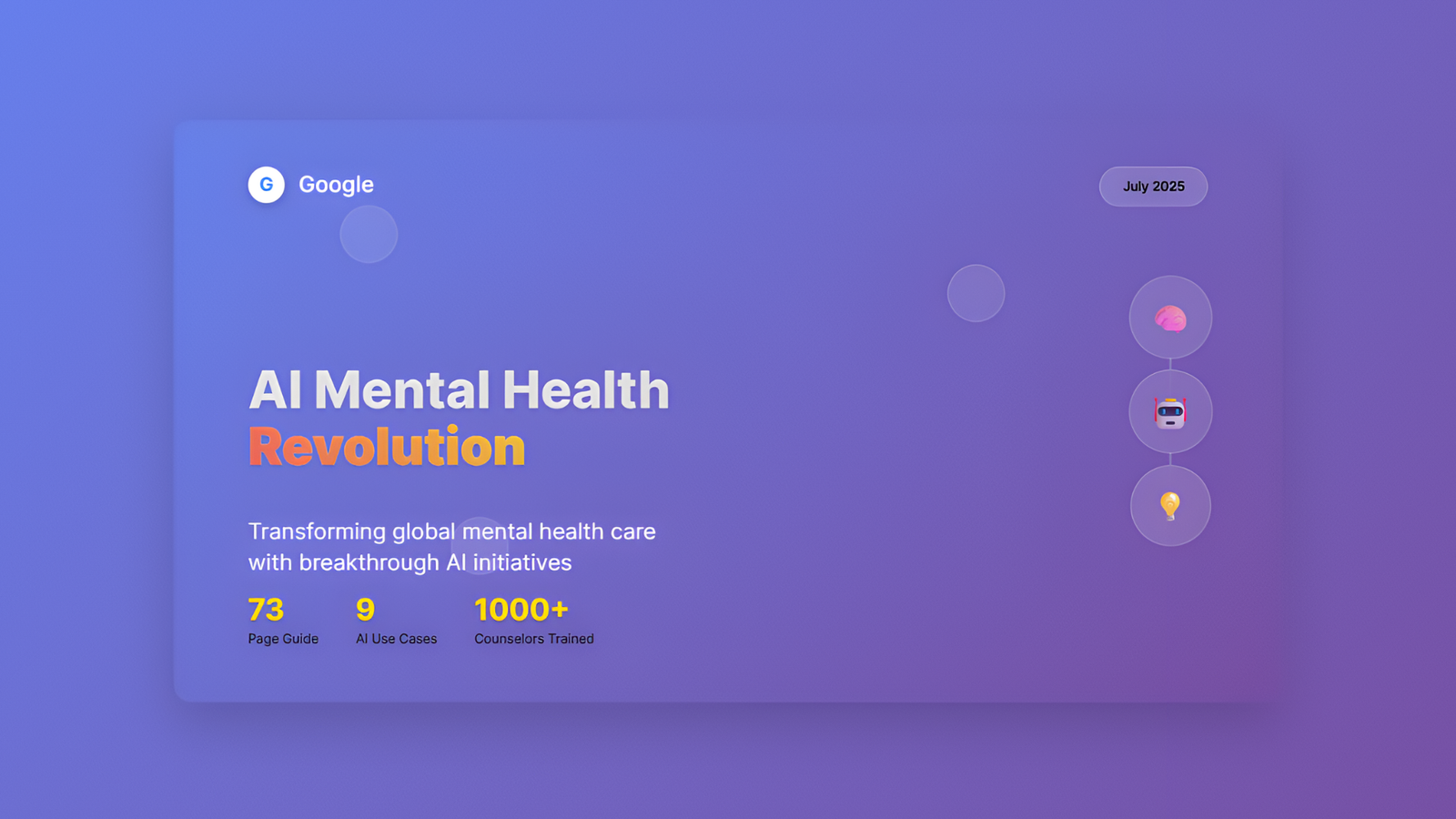
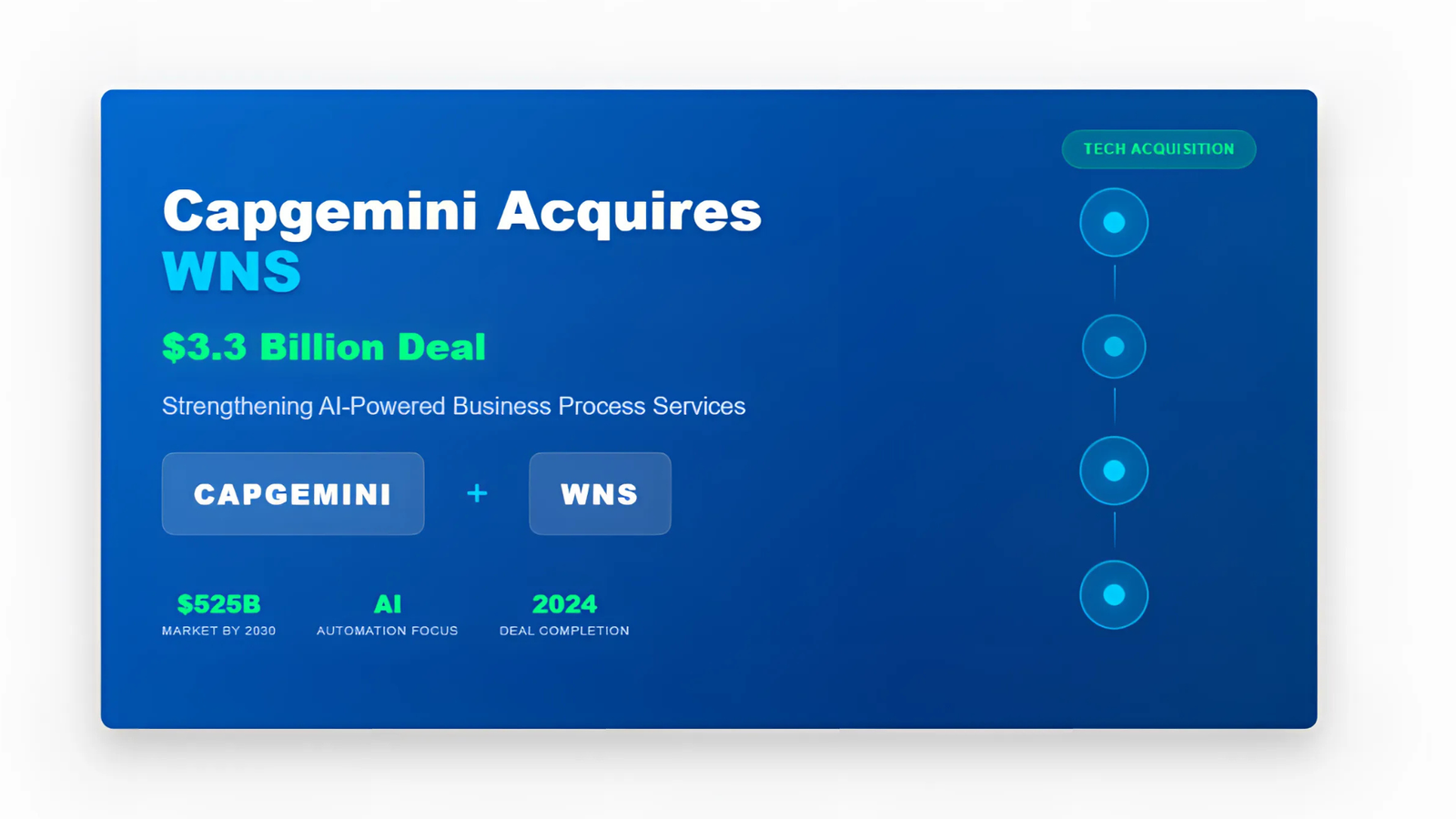
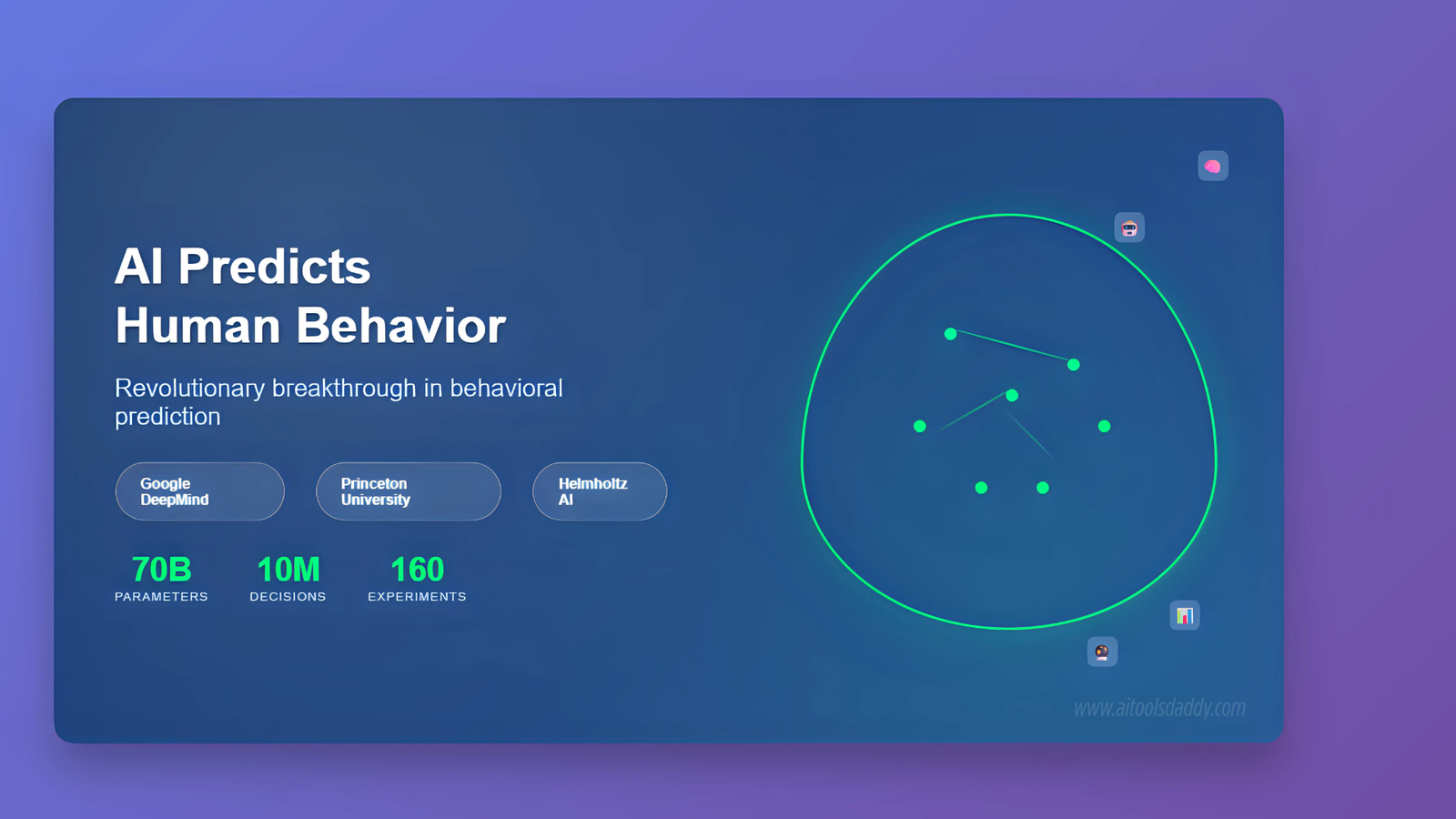


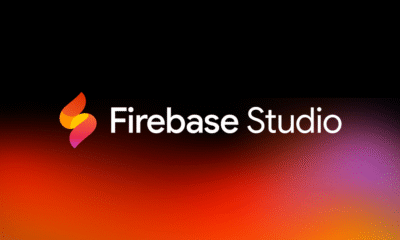
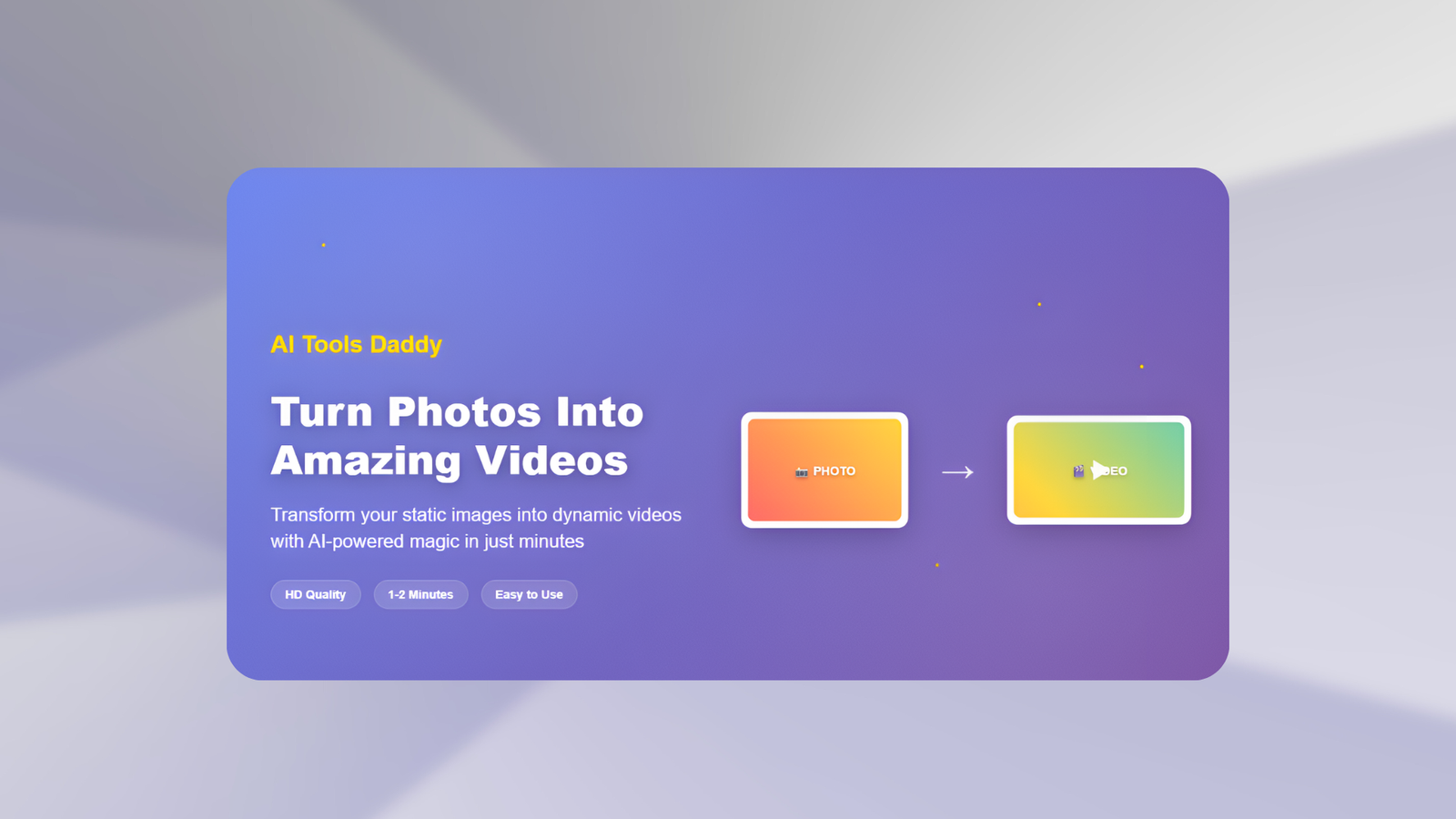
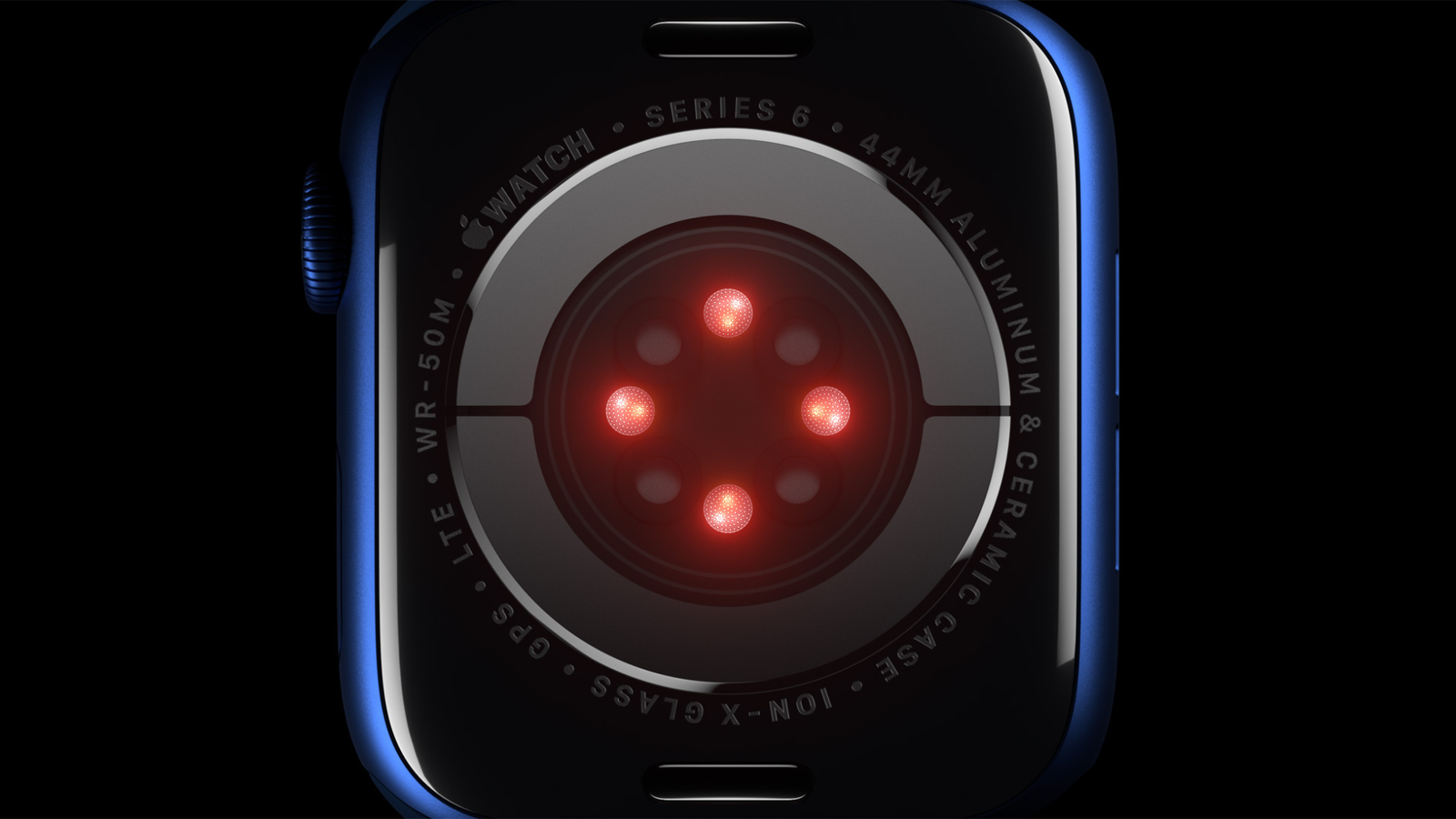
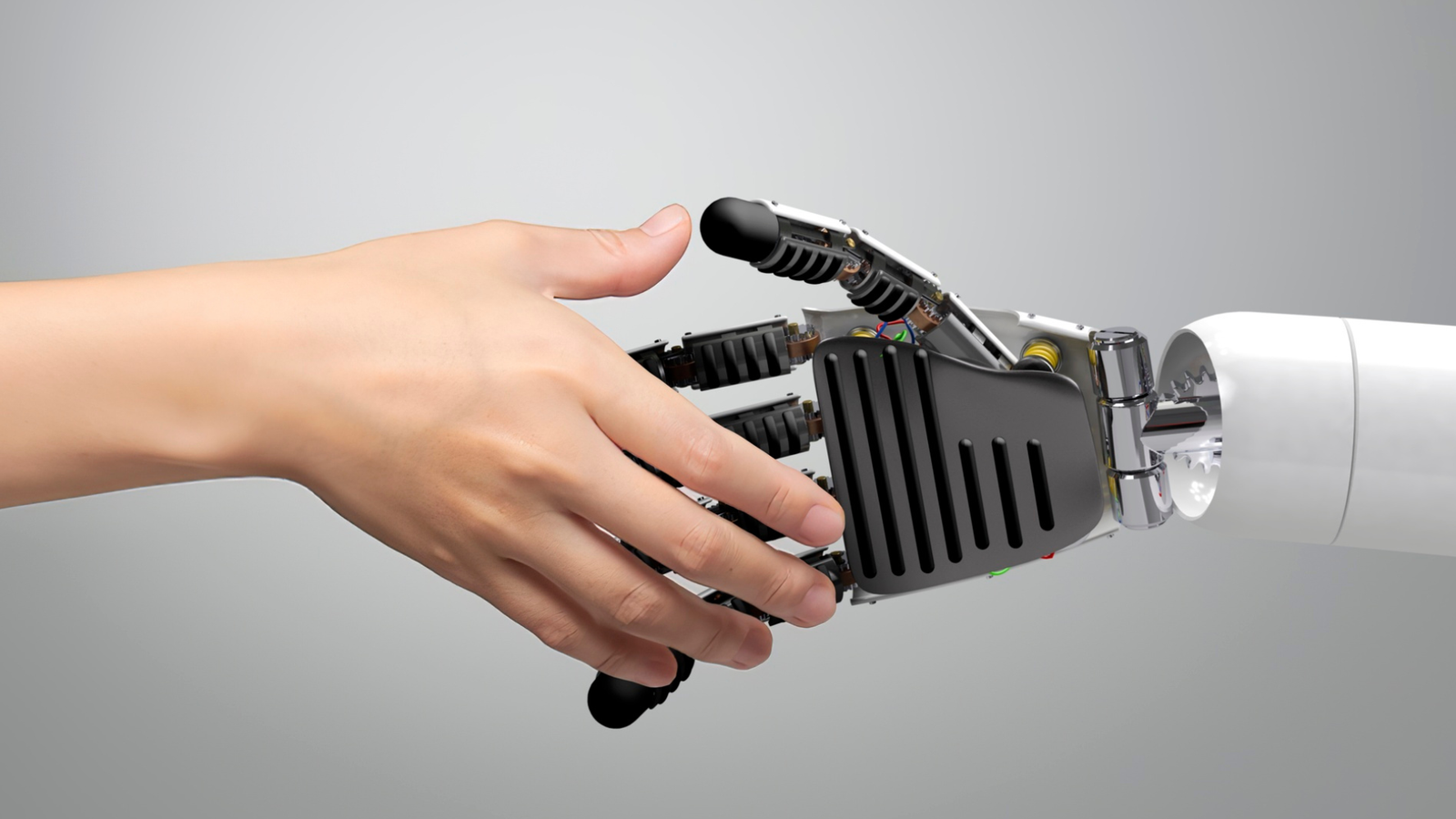
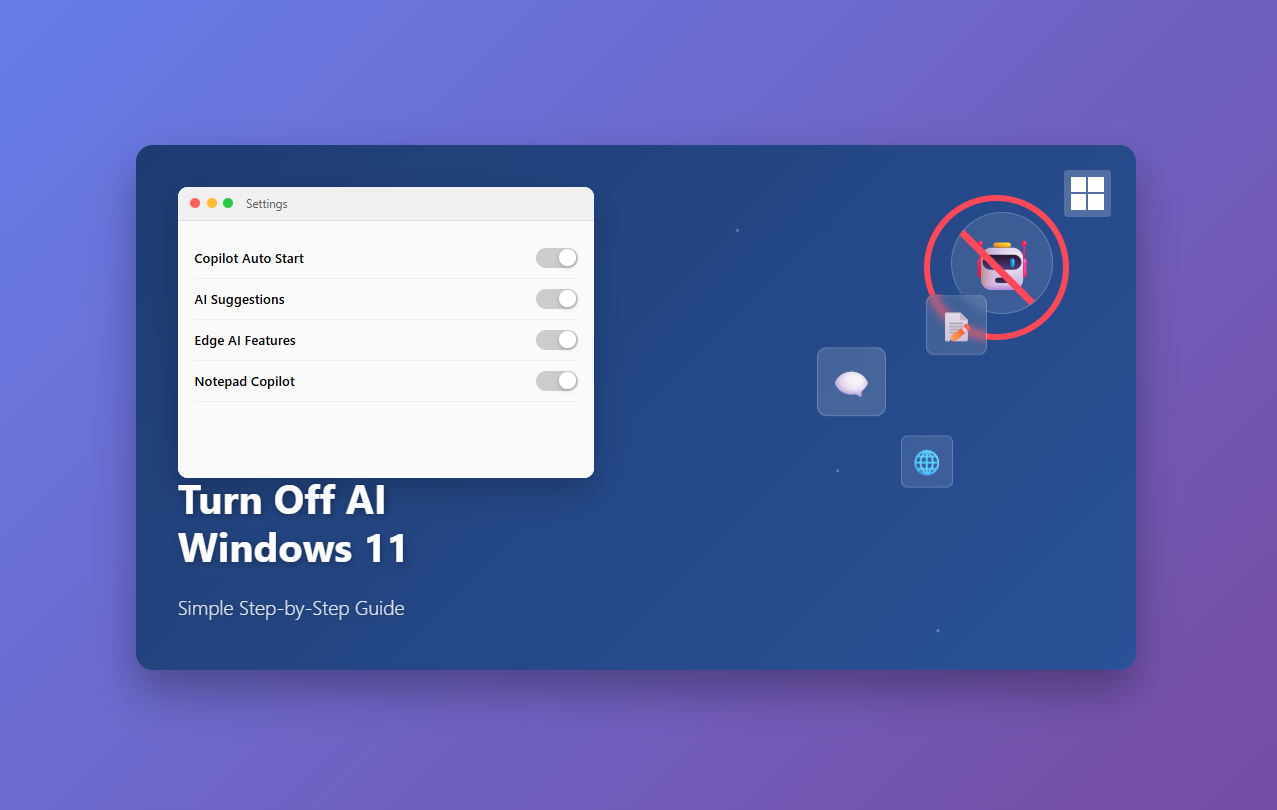


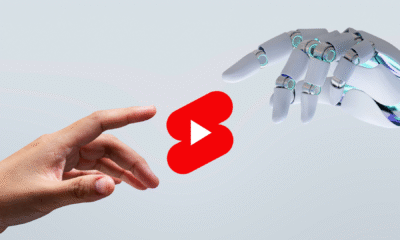
Pingback: Best Video Clipping Tools That Actually Work - AI Tools Daddy
Pingback: YouTube Adds AI-Powered Video Carousel For Premium Users - AI Tools Daddy
Pingback: YouTube two AI updates to help you dive deeper - AI Tools Daddy